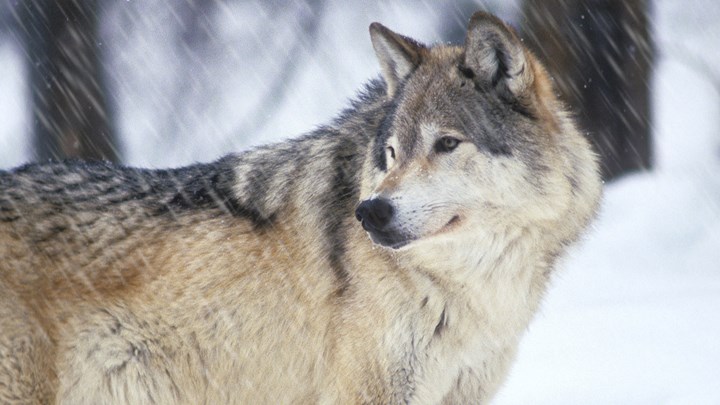
by Mark Chesnut - Wednesday, December 18, 2024

Here at the NRA Hunters’ Leadership Forum, we’ve been covering the issue of reintroducing wolves in Colorado for several years, from NRA’s fight to prevent wolf releases to the impact of wolves on elk populations to how some Colorado wolves already have had to be relocated for killing livestock.
Now, plans to release more wolves on the state’s Western Slope in 2025-2026 might be put on hold for a reason that has nothing to do with wildlife biology or politics. As noted in a report by ColoradoPolitics.com, the state is in the hole by $1 billion, and those looking for ways to cut that deficit have found the money spent for further wolf reintroduction a big piece of cash that could help with the funding problems.
According to an analysis by the Colorado House of Representatives Joint Budget Committee staff in 2023-2024, “the second most significant increase in general funds for the Department of Natural Resources, which houses the Colorado Parks and Wildlife division, was for more funding to assist with wolf reintroduction.” According to the analysis, delaying the wolf introductions could save the state general fund budget about $2.1 million.
Budget officials are also proposing a reduction in the amount of money earmarked for compensating ranchers who lose livestock to wolves. They propose cutting that budget in half, from $350,000 to $175,000.
Colorado got to this point due to passage of a 2020 ballot measure, narrowly approved by voters, requiring the reintroduction of wolves into the state. The “ballot-box biology” mandate marked the first time in history that a state’s authority to decide whether to introduce a species was taken away from the state’s wildlife agency and given to voters who generally know little about science-based wildlife management.
As shared on this NRA website, the first animals in what is today called the “Copper Creek Pack” were set loose in December 2023. Within a year, the growing pack repeatedly attacked and killed area livestock. Not surprisingly, local ranchers wanted the pack eradicated. However, CPW spokesperson Travis Duncan told the Associated Press in September 2024, “We don’t have enough wolves on the landscape to lethally remove” the pack, explaining that officials are avoiding killing the animals because it is “too early in the process of reintroduction.” The U.S. Fish and Wildlife Service opted to capture and relocate the wolf pack.
For Coloradans, a pause in wolf reintroduction would be a welcome thing. It bears repeating that not only are the wolves released not native to Colorado, but it has been proven in other Western states how devastating they are to all ungulate populations. That doesn’t even factor in the damage they do to the livestock industry, which in many cases leads to farmers and ranchers having to be compensated by the state using money that otherwise could be put toward other important wildlife management projects.
As we noted back in November, one would’ve only had to look to Montana to understand that inserting hungry apex predators into a landscape was going to come with substantial drawbacks. In the 1990s, Montana wildlife officials began translocating gray wolves into the state. It didn’t work very well—for ranchers or even the wolves themselves.
A recent article in the Colorado Sun cited a University of Montana study on the Montana wolf relocations that “concluded that more relocated wolves died and survivors often killed livestock in their new locations. Of the 88 translocated wolves in the 2005 study, 58 died after the trapping and moving.”
Once these wolves began killing livestock, officials trapped and moved the adult pack members. In some cases, this meant the younger wolves that were not caught eventually died as they didn’t yet know how to hunt effectively.
According to the ColoradoPolitics.com report, a coalition of livestock organizations recently pleaded with the Canadian government to halt plans to send wolves from British Columbia to Colorado. Colorado Parks and Wildlife was forced to turn to the Canadian government for more wolves after being turned down by multiple states and one Native American tribe.
Because of the budget shortfall, Gov. Jared Polis has recommended an overall budget reduction of almost $10 million for the Department of Natural Resources. That represents about 22% of the agency's general fund appropriations.
About the Author
Freelance writer and editor Mark Chesnut is the owner/editorial director at Red Setter Communications LLC in Jenks, Okla. An avid hunter, shooter and field-trialer, he has been covering Second Amendment issues and politics on a near-daily basis for over 25 years.
E-mail your comments/questions about this site to:
[email protected]
